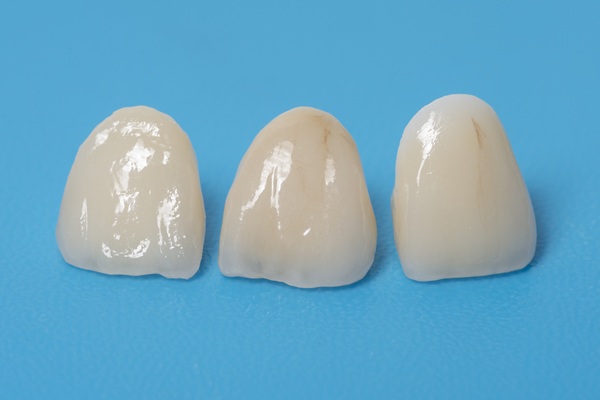Different Types of Gum Disease

There is a good chance that you or someone you know has a type of gum disease. It is important to know there are multiple types of gum disease that can affect your oral health. If left untreated, some gum diseases can increase your risk of other health concerns. Learn about gingivitis and periodontitis, which are the most common types of gum disease.
Learn the FAQs about gingivitis and periodontitis
Gingivitis is the most typical type of gum disease. Patients may have heard about it from the dentist. It develops from the plaque buildup on the patient’s teeth and gums. The bacteria from the plaque can begin to damage the teeth and gums, making them more sensitive, puffy and irritable.
If left untreated, gingivitis can become periodontitis. Periodontitis is a more serious form of gum disease. It can cause infections that may destroy the bone supporting a patient’s teeth. This can result in tooth loss, bad breath and bleeding gums.
How does gingivitis present?
Gingivitis is formed by a buildup of plaque along the patient’s gumline. The most common symptoms of the milder form of gum disease include sensitive teeth and swollen, tender or bleeding gums. A dentist might also notice some pockets in the patient’s gums where the gums attach to the teeth.
What are the symptoms of periodontitis?
Symptoms of periodontitis are more severe than those of gingivitis. Pockets will become larger and a patient may notice pus leaking out between the gums and the teeth. Patients may notice teeth becoming looser. Sores can develop in the mouth. Patients may notice bad breath or a foul taste in their mouths.
What risks does gum disease have?
Periodontitis can result in the patient losing teeth or developing an infection. In rare circumstances, the infection can spread to the rest of the body. This is one reason it is important to have gum disease treated in a timely manner.
How is gum disease treated?
First, the dentist or periodontist will instruct a patient to take proper care of their oral health. When patients have mild gingivitis, the dentist can reverse the condition and help improve gum health. If the disease has become periodontitis, more extensive treatments may be required. These can include scaling and root planing, laser treatment or even surgical treatment.
Is gum disease preventable?
Patients can reduce the chance of developing gum disease by practicing good oral hygiene. Visiting the dentist for regular checkups can also help prevent the development of gum disease. Patients should inform the dentist of any prescribed medication. Specific medicines can inflame the gums. Patients should always follow a dentist’s recommendation to keep the gums and teeth as healthy as possible.
Talk to a dentist about the types of gum disease
A dentist will be able to help diagnose and treat gum disease while it is still mild or even if it becomes more severe. Learning the facts behind what causes gum disease can help you prevent it from occurring. If you believe that you have gum disease, it is important to see a dentist as soon as you can.
Request an appointment here: https://www.esdmke.com or call Eastside Dental at (414) 888-4000 for an appointment in our Milwaukee office.
Check out what others are saying about our services on Yelp: Read our Yelp reviews.
Related Posts
Dental crowns are a reliable and durable solution for restoring the appearance and function of damaged teeth. While dental crowns are designed to last years, proper care and maintenance are essential for extending their lifespan. Following practical steps and working closely with your dentist can protect your investment and enjoy a confident smile for years.Maintaining…
Clear braces are becoming more common among patients of all ages. In past years, orthodontists chose traditional metal braces to straighten crooked teeth. However, there are advantages to using clear options instead. If you do not want your orthodontic treatment to hinder your smile, you should not have to worry. Repair your teeth without anyone…
Periodontics is a branch of dentistry that focuses on studying, diagnosing, and treating issues that affect the gums and the bone structures that support teeth. Periodontal disease is the leading dental problem that periodontics focuses on.Periodontal disease is an infection of gum tissues caused by the bacteria in plaque and tartar getting below the gum…
Emergency dentistry for a root canal is sometimes the only way to relieve your pain. Some patients may have a root canal scheduled for a future date, but they find themselves in severe pain at an inconvenient time because of tooth pain. There may even be times when a patient may not realize they need…


